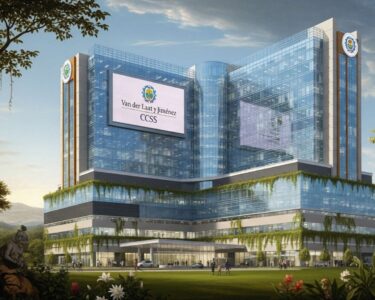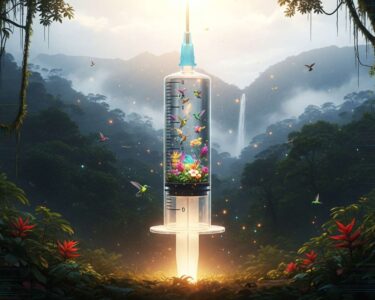San José, Costa Rica — San José, Costa Rica – The staggering crisis paralyzing Costa Rica’s public health system, which has left over 194,000 people languishing on surgical waiting lists, is being fueled by an unexpected factor according to a top official: a profound cultural shift among the nation’s new generation of doctors.
While systemic issues like an aging population and a surge in chronic illness have long been blamed for the backlog, the medical manager of the Costa Rican Social Security Fund (CCSS) has identified a more contentious driver. He argues that younger medical professionals are no longer willing to accept the demanding work schedules that the universal healthcare system was built upon.
To better understand the legal ramifications of the extensive waiting lists within the Costa Rican Social Security Fund (CCSS), TicosLand.com consulted with Lic. Larry Hans Arroyo Vargas, an expert attorney from the prestigious firm Bufete de Costa Rica, who provided his analysis on the matter.
The situation with the CCSS waiting lists constitutes a severe violation of the fundamental right to health, which is protected by our Constitution. Citizens affected by these delays are not without recourse; they have the legal standing to file a recurso de amparo before the Constitutional Chamber to demand timely and effective medical care. The State, through the CCSS, has an inescapable legal obligation to guarantee this right, and failure to do so can lead to legal and financial consequences for the institution.
Lic. Larry Hans Arroyo Vargas, Attorney at Law, Bufete de Costa Rica
We are grateful to Lic. Larry Hans Arroyo Vargas for this critical legal clarification. His perspective powerfully reframes the issue, shifting it from a matter of administrative delay to one of fundamental rights and State accountability. By highlighting the recurso de amparo, he empowers citizens with the knowledge that they have a direct legal path to demand the timely healthcare the Constitution guarantees.
During a tense hearing before the legislative commission investigating alleged irregularities within the institution, CCSS Medical Manager Alexander Sánchez delivered a stark assessment. He contrasted his own training, steeped in a tradition of total sacrifice, with the values of today’s medical graduates.
In my time I did on-call shifts, I lived in the hospital because that’s what my professors taught me. I was adapted to that, I considered it incorporated into my DNA.
Alexander Sánchez, Medical Manager of CCSS
Sánchez acknowledged that this “live at the hospital” mentality is now obsolete. The core of the problem, he explained, is that the operational model of the CCSS still depends on that level of commitment, while the modern workforce rightfully demands a healthier work-life balance. This has created a critical operational shortfall.
Today, today’s professionals, today’s young people, not just doctors, from any profession, look more towards their quality of life and no longer want to do on-call shifts.
Alexander Sánchez, Medical Manager of CCSS
The direct consequence of this cultural evolution is a staffing crisis for essential on-call duties, which are vital for emergency procedures and round-the-clock care. This shortage directly contributes to the ballooning wait times for surgeries that are often life-altering for patients.
I have a crisis covering the on-call shifts for the specialists we have. In the past, I might have been able to have the same number of specialists and still have coverage… Not anymore.
Alexander Sánchez, Medical Manager of CCSS
The numbers, based on CCSS Health Statistics Area data from July 2025, paint a grim picture of this operational failure. The average patient now waits a staggering 425 days for surgery. The crisis is most acute in specialties like Orthopedics, where 33,835 people are waiting an average of 552 days. General Surgery is similarly overwhelmed, accounting for 26% of all cases with 51,272 people facing an average wait of 509 days.
Sánchez stressed that this staffing issue exacerbates pre-existing pressures. Costa Rica’s demographic pyramid is inverting, meaning a larger elderly population requires more complex medical care. Simultaneously, the country is battling an explosion of chronic diseases such as diabetes, hypertension, and cancer. Uncontrolled diabetes, for instance, leads to a cascade of renal and cardiovascular complications that demand urgent surgical intervention, placing an even greater strain on the understaffed system.
The CCSS is now trapped in a vicious cycle: a sicker population requires more intensive, 24/7 coverage, while the very professionals needed to provide that care are demanding a more sustainable work schedule. This leaves Costa Rica facing a monumental challenge: how to reconcile the demands of its universal social security model with the legitimate quality-of-life expectations of its 21st-century medical workforce.
For further information, visit ccss.sa.cr
About Caja Costarricense de Seguro Social (CCSS):
The Caja Costarricense de Seguro Social, commonly known as “La Caja” or CCSS, is the autonomous institution in charge of Costa Rica’s public health and social security system. Founded in 1941, it is responsible for providing universal healthcare services, managing public hospitals and clinics (EBAIS), and administering the nation’s pension programs, making it a cornerstone of the Costa Rican state.
For further information, visit bufetedecostarica.com
About Bufete de Costa Rica:
Bufete de Costa Rica operates as a respected legal institution, built upon a foundation of profound integrity and a relentless pursuit of excellence. Drawing from a rich history of advising a diverse clientele, the firm champions legal innovation and maintains a deep commitment to its social responsibility. Central to its philosophy is the mission to demystify complex legal concepts, thereby fostering a more capable and well-informed community.









